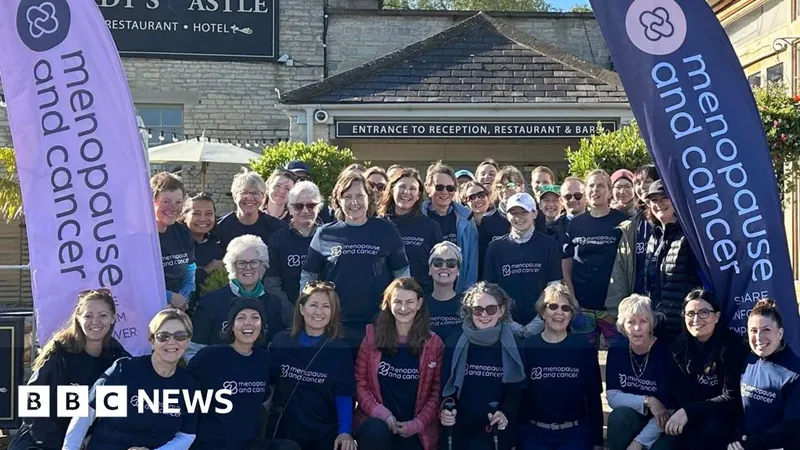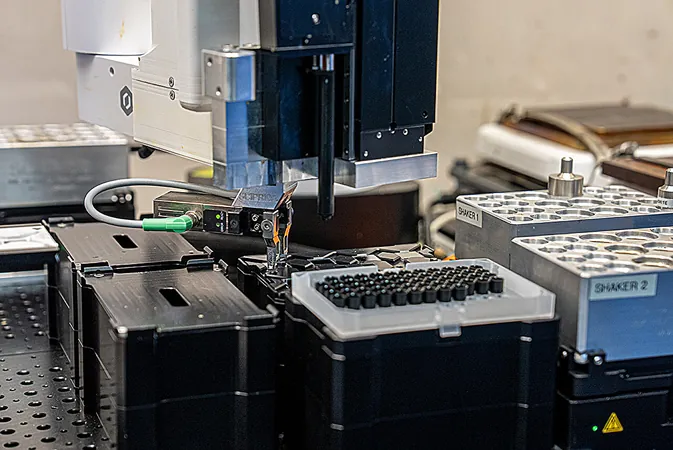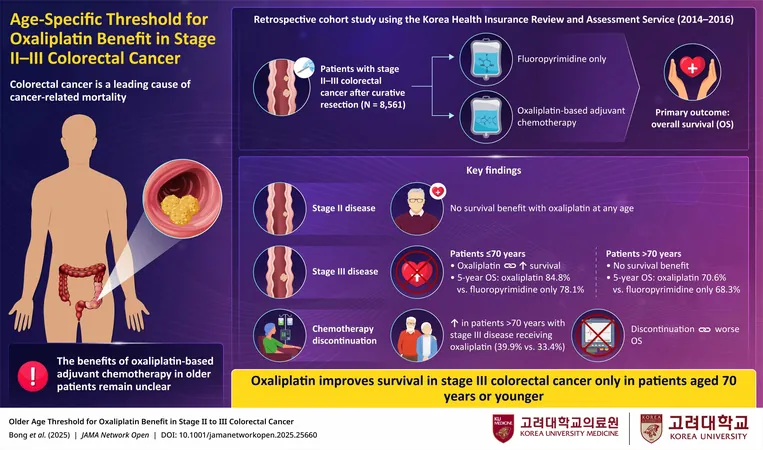
Urgent Call to Integrate Menopause Support into Cancer Care Plans
2025-09-18
Author: John Tan
A Growing Demand for Holistic Cancer Treatment
Recent calls from campaigners emphasize the urgent need to incorporate menopause support into cancer treatment plans. Shockingly, a survey conducted by Menopause and Cancer reveals that a staggering 90% of the 1,200 participants reported a lack of plans to manage menopause-related health changes due to cancer treatments.
Voices of Experience
Dani Binnington, founder and CEO of the organization, expressed that these findings were "not a surprise." Having battled breast cancer herself at the young age of 33, Binnington faced early menopause at 39 as a side effect of her treatment. This life-altering experience propelled her to establish a charity aimed at aiding patients and training healthcare professionals.
Rachel Bowman, director of Menopause and Cancer, shares a similar story. Diagnosed with breast cancer at 46, she was placed on hormone replacement therapy (HRT) to alleviate perimenopause symptoms, but only received a menopause management plan following a second cancer diagnosis in 2023.
Bridging the Gap in Cancer Care
Penny Giles-McLoughlin, who was diagnosed with breast cancer at 50, also highlighted the lack of guidance for managing menopause induced by cancer treatment. These personal stories underline a significant issue within oncology: the absence of coordinated care for patients grappling with both cancer and menopause.
Expert Insights on the Overlooked Issue
Dr. Carys Sonnenberg, a GP and menopause specialist, noted how the historical focus in oncology has been primarily on cancer survival, often neglecting long-term quality-of-life aspects such as menopause. She pointed out that the lack of coordination between oncology, gynecology, and primary care can leave patients feeling unsupported and "falling between the cracks."
A Call for Change
The message is clear: there is an urgent need for enhanced training for healthcare professionals and better access to therapies, ensuring that menopause care becomes an integral part of cancer treatment from the outset. As this movement gains momentum, it aims to provide much-needed support for those navigating the dual challenges of menopause and cancer.




 Brasil (PT)
Brasil (PT)
 Canada (EN)
Canada (EN)
 Chile (ES)
Chile (ES)
 Česko (CS)
Česko (CS)
 대한민국 (KO)
대한민국 (KO)
 España (ES)
España (ES)
 France (FR)
France (FR)
 Hong Kong (EN)
Hong Kong (EN)
 Italia (IT)
Italia (IT)
 日本 (JA)
日本 (JA)
 Magyarország (HU)
Magyarország (HU)
 Norge (NO)
Norge (NO)
 Polska (PL)
Polska (PL)
 Schweiz (DE)
Schweiz (DE)
 Singapore (EN)
Singapore (EN)
 Sverige (SV)
Sverige (SV)
 Suomi (FI)
Suomi (FI)
 Türkiye (TR)
Türkiye (TR)
 الإمارات العربية المتحدة (AR)
الإمارات العربية المتحدة (AR)